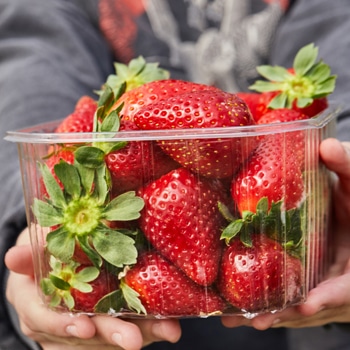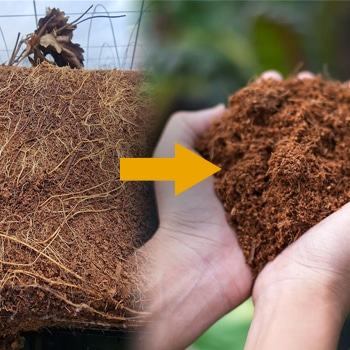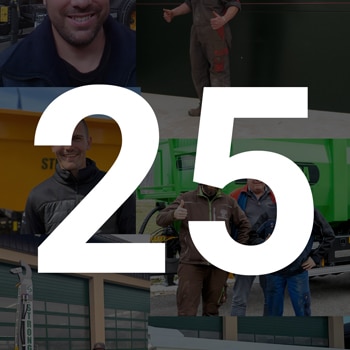What are Waste “Fines”?
Waste fines or trommel fines is the residual material remaining after mixed waste material has been mechanically-processed through various processes including; trommeling/screening, shredding, sorting and metal separation. After these processes have been completed, the fines fraction is separated according to size; any material that isn’t separated will be sent to landfill, incurring transport costs, landfill fees and increasing levels of standard landfill tax.
Fines are generally a heavier fraction containing a mix of soil, sand, insulation, glass, metal, plastic and wood and may be contaminated with hazardous material, which needs professional disposal. There are two categories for fines landfill disposal; 1) standard rate and 2) lower rate. Upon inspection, fines are subject to different fees.

Landfill Tax Rates - Standard vs. Lower
(1) At time of publication, standard rate trommel fines have a higher landfill UK tax disposal cost of approximately £103 per tonne. The UK government has, however, recently announced a drastic 21% increase to this tax, taking the standard landfill rate to £126.15 per tonne next year. This is without accounting for transportation costs and landfill/gate fees. These fines may contain hazardous materials with higher hydrocarbon and contamination content, and this directly impacts disposal costs.
(2) Comparatively, materials classed as “lower rate” trommel fines pass non-ignition tests and therefore incur a drastically lower fee of roughly £3 per tonne, although this will also increase it is almost £100 less per tonne, every single day. Landfill tax is rising steeply, but cost increases are becoming more and more expected. If impacted businesses are to avoid these steep cost increases – they need to look for alternative ways to reduce waste to landfill dumping.
Drying trommel fines in Stronga’s FlowDrya, using available on-site residual heat, creates a multitude of benefits. Stronga’s fines drying process helps waste management companies recycle a higher percentage of incoming waste streams while subsequently reducing landfill disposal. These savings really add up over the years and contribute significantly to the growth potential of waste management facilities. The graph below shows how landfill tax has increased substantially since the year 2000.

Why are there Strict Compliance Laws for Fines Disposal?
The 500 landfill sites currently in operation in the UK are filling up incredibly fast and it is clear that costs for disposal will only increase in the coming years. An unintended consequence of higher landfill costs is increasing levels of fly-tipping and misclassification crimes. Trommel fines sampling research carried out in 2020 showed that misnaming fines in order to cheat the system in favour of lower rate fees was high. Onsite landfill ignition testing is now used and landfill site owners have been instructed to take a more stringent approach to waste acceptance. Compliance laws are stricter now than ever before.
Generally, increasing costs associated with landfilling will encourage higher recycling %’s from waste management companies, as many seek legal options to reduce their trommel fines to landfill. Drying trommel fines is the easiest and lowest cost solution to reducing costs and creating income in wet weather periods when fines contain a significant amount of water (up to 50% by weight where water weighs 1kg per litre).

What has Been the Reaction ‘On the Ground’?
As discussed above, waste facilities are suffering increased costs through higher landfill taxes, penalties, energy costs and transportation costs. Together, these factors are forcing businesses to consider drying as a viable strategy to increase separation percentages of fractions and reducing the weight of fines sent to landfill.
The Environment Agency and Government Bodies are launching new programming enforcements and waste legislation to ensure that misdescription and waste crimes are reduced with stricter regulations for waste producers and acceptors. Together with dramatic landfill fees, inflation, high standard rate trommel fines disposal costs, transport costs and landfill gate fees, these strict enforcements are leading businesses to reduce the volume of fines sent to landfill through drying and recycling. Stronga have been supporting waste management facilities, like the one below, on their journey towards reduced costs and increased profits through drying waste fines.

How Can Drying Fines Reduce Waste to Landfill?
Due to the spongy nature and variation in material type, waste fines can absorb and hold a lot of moisture and as a result, become even heavier in high rainfall periods. As an example, 250kg’s per m³ of the total wet basis bulk density of 500m³ could be moisture. That’s 50% of the costs of transport, landfill taxes and landfill site gate fees; your business is paying for essentially, very expensive water. To put this in financial context that could be roughly £1,400 avoided every single truck load. How many truck-loads of trommel fines does your company send to landfill each year?
Drying trommel fines allows for significant improvements in processing and separation (when fines are full of moisture, they simply cannot be separated as effectively) whilst also enabling higher quantities of solid recovered fuel (SRF) to be extracted, thus reducing the volume sent to landfill. This is a win-win-win situation for waste companies. Not only do they benefit from lower landfill costs; they also benefit from larger quantities of dry SRF (with a higher calorific value) which can be sold or used in a reactor for on-site renewable energy production.

Drying Fines is the Way Forward
On top of the benefits explained above, other materials can also be reprocessed and extracted from dry fines fractions such as sand, metal and aggregates. These valuable materials can be processed and sold within the construction industry to further improve the client’s profits. Overall, drying trommel fines allows for:
- Less moisture in waste to landfill = less weight, fewer tonnes and significantly lower landfill tax.
- More SRF extraction, more renewable energy production and less fossil fuel usage.
- Improved % of material separation away from landfill.
- Lower landfill gate fee costs.
- Lower transportation costs.
- Lower emissions (CO₂).
The above costs really add up over time to make a significant case for drying trommel fines, especially when using residual heat from on-site ‘GenSets’. Some of Stronga’s customers are currently paying as much as £2.5 million a year to dispose of their high moisture-content fines fraction. We estimate they are approximately halving this annual fee through drying fines using Stronga’s FlowDrya and Heatex fines drying solutions.

How Can I Maintain these Savings Whilst Powering My Waste Dryer?
Stronga believes in utilising on-site circular energy economy, creating economically-sustainable, environmentally-friendly processes. FlowDrya has been designed with long-term sustainability in mind, offering excellent energy efficiency through utilising residual heat sources to dry SRF and other waste fractions.
Waste management sites use onsite processing, screens and sorting equipment requiring diesel powered generators to function. Diesel generators have significant amounts of wasted residual heat, the animation below visualises the opportunities for wasted thermal energy to dry waste fines.
5 Unique Selling Points of FlowDrya
Stronga’s continuous FlowDrya is available in a special ‘waste-series’ specification. Discover the USPs:
1. Stronga’s waste-series FlowDrya is the most robust, long-life, well-proven fines drying solution available in the market.
2. The waste-series FlowDrya offers full compliance with regulations whilst enabling waste management facilities to directly tackle rising landfill costs.
3. Well-proven in the waste fines sector, FlowDrya has a simple but highly effective design, scaled to your individual waste drying requirements.
4. The unique, well-developed data logging function on the HMI allows operators to monitor important parameters such as water supply flow and return temperatures and drying air temperature in the plenum.
5. The hydraulic PulseWave™ moving floor system ensures uniformly dry output by thoroughly agitating and mixing the fines material whilst thoroughly evaporating moisture on the drying bed.

Take the Competitive Advantage, Today
With landfill tax, fuel and transportation fees only likely to increase significantly over the coming years, FlowDrya offers the market’s leading solution to help your business take the competitive advantage by reducing costs and increasing profits through drying waste fines. See where the opportunity takes you – contact Stronga; we’d be happy to discuss your project - info@stronga.co.uk



Share this post